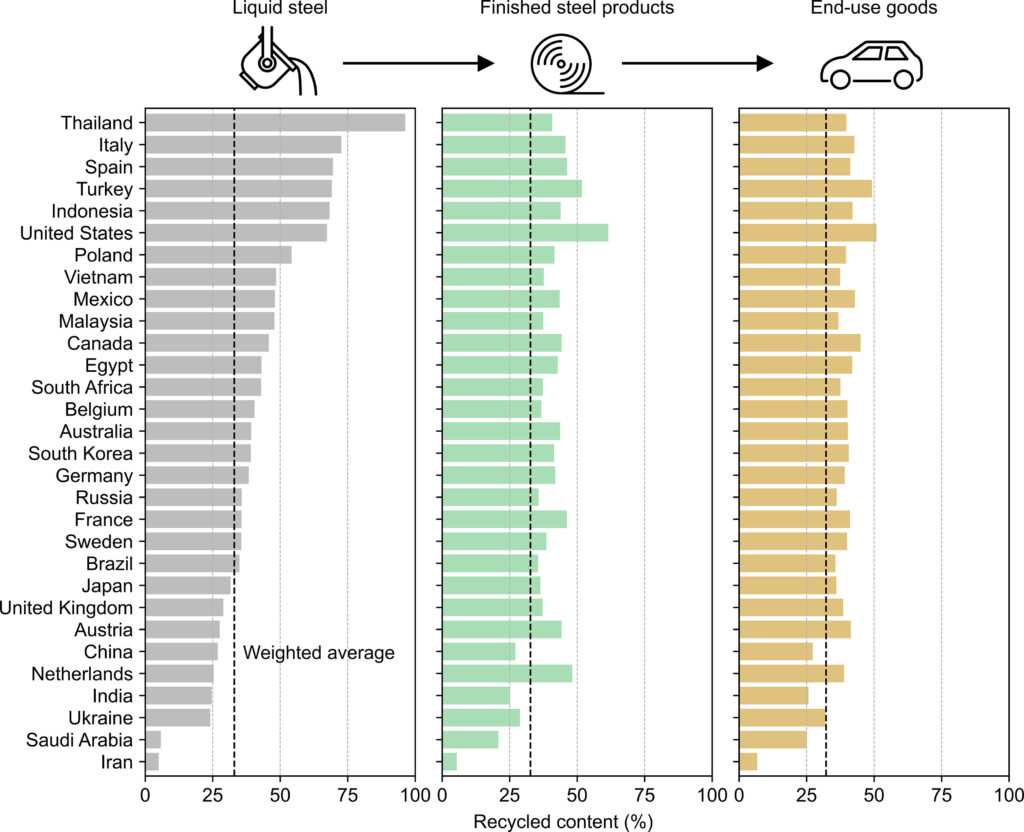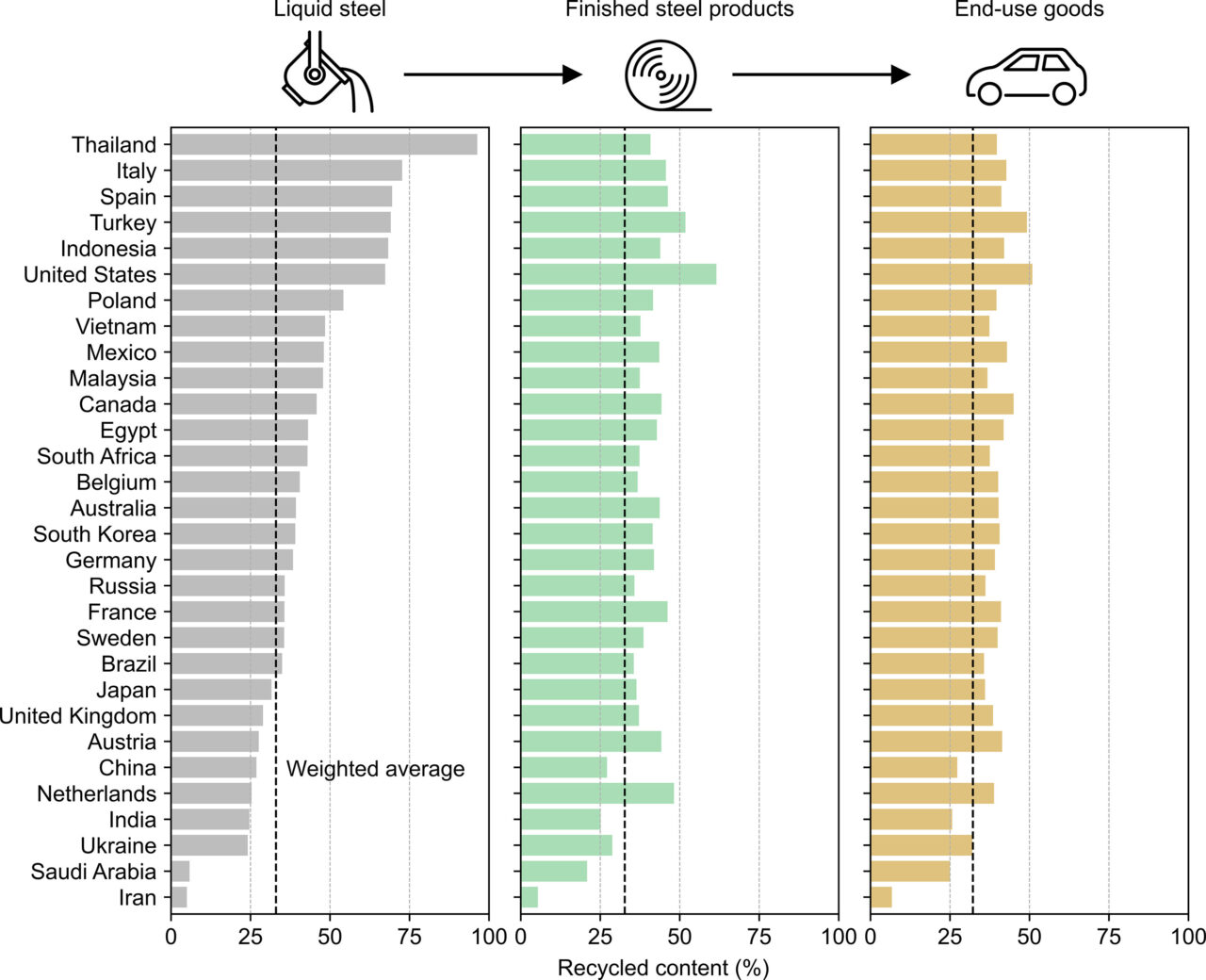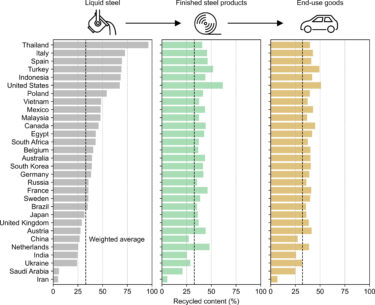
著者
Takuma Watari, Tomer Fishman, Hanspeter Wieland, and Dominik Wiedenhofer
掲載誌
Resources, Conservation and Recycling, 220, 1083637, Link
要旨
Steel is widely regarded as the world’s most recycled material, yet little information exists on just how circular the steel industry actually is, both globally and nationally. This study traces iron and steel flows across the top 30 steel-producing countries, showing that the share of recycled iron inputs into global steelmaking has stagnated at ∼30 % over the past two decades. Although waste management practices have improved, the rapid growth of global in-use steel stock has prevented progress in making steel flows more circular. While some countries show higher recycled content than others, ranging from <10 % to >90 %, this does not necessarily reflect leadership in recycling practices. Rather, high circularity in some places is often supported by low circularity elsewhere through scrap imports or ‘offshoring’ the production of high-quality flat products. As long as global steel stock continues to grow, improvements in local circularity do not necessarily lead to global progress.


